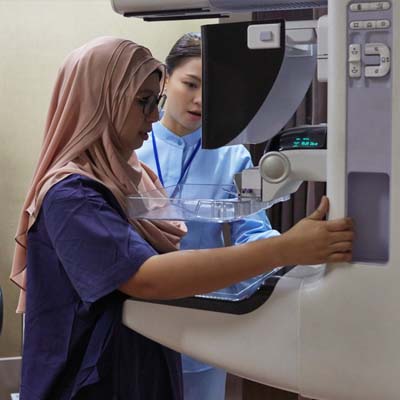How to Quit Smoking and Why

September 28, 2021
According to the American Cancer Society, 142,670 Americans are expected to die of lung cancer this year. To put it in perspective, it’s as if the entire population of Dayton, Ohio, died in one year.
Smoking is the main cause of lung cancer, says Martin Gutierrez, M.D., chief medical oncologist of the thoracic division at John Theurer Cancer Center part of Hackensack University Medical Center. “There are all sorts of carcinogens in smoke, and because you inhale, the smoke is direct contact with lung tissue,” he says.
While it can take 20 to 30 years to develop lung cancer, the sooner you quit smoking, the better your chances are of avoiding it.
People who think they’ll be safe by smoking marijuana, electronic cigarettes or other non-tobacco products may be in for a surprise in later years. Dr. Gutierrez says that no one knows the long-term effects of the electronic cigarettes, and there aren’t any statistics about marijuana and lung cancer. He adds about smoking them, “I can’t imagine there isn’t a risk of carcinogens.”
Tips for Quitting Smoking
So how to quit? Dr. Gutierrez says, “It’s incredibly difficult to quit. Smoking is so addictive.” Some of his patients have had varying amounts of success with going cold turkey, while others have used pharmaceutical methods (like patches) and acupuncture. Here are methods some people have used and how they work:
- Cold turkey: This is often the fastest way to quit, but it’s not easy. Pick a date in the near future when you aren’t likely to be under a lot of stress, and mentally prepare. Have friends and family supporting you. After the first two or three days, your withdrawal symptoms likely will start to decrease.
- Pharmaceuticals: Your personal physician can work with you to find the best products for your personal health and lifestyle.
- Classes: Smoking Cessation classes are the right choice for many people no matter what method they choose to help them quit smoking. In the classes, you’ll learn medical facts about what is happening to your body, tips on how other people have quit, how to identify and deal with triggers that make you want to smoke, and very importantly, you’ll have the support of others in your class who are dealing with the same thing you’re going through.
For everyone, while you are quitting, try to avoid situations where you smoked before. For instance, if you smoke while watching television, take a walk or read a book to distract you until the cravings are less. Spend your free time at places where smoking isn’t allowed like shopping centers, movies and smoke-free restaurants. Spend time with family and friends who support you and will help if you get irritable or moody.
And be good to yourself. The health benefits of not smoking will start quickly and you’ll be amazed at how much more energy you have!
The material provided through HealthU is intended to be used as general information only and should not replace the advice of your physician. Always consult your physician for individual care.
Find a doctor near me
Life After Cancer

Awaking one morning with chest pain, Arthur Becker, 68, feared a heart attack and headed to the Emergency Department at Southern Ocean Medical Center.
Find a doctor near me

What Are the Early Symptoms of a Brain Tumor?
Detecting a brain tumor early in its development can help improve outcomes. Our expert shares the early symptoms of a brain tumor, and when to seek help.

Which Screening Technology Is Right for Me?
Are all breast cancer screening methods the same? Our expert breaks down various technologies and who is a candidate for which.

8 Possible Causes (and Treatments) for Your Dizziness
Research shows that dizziness, vertigo and balance problems affect about 15 percent of U.S. adults each year.

The Facts About Thyroid Cancer
The thyroid produces hormones ensuring that critical systems within the body function properly.
